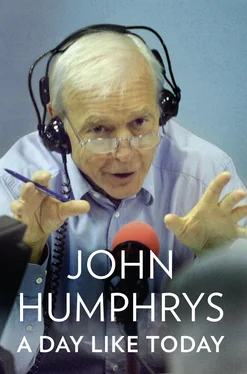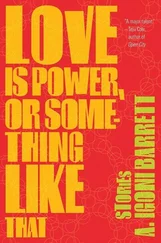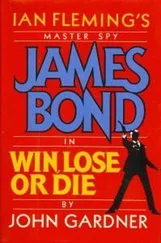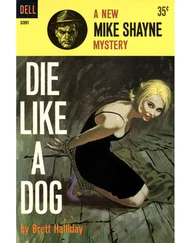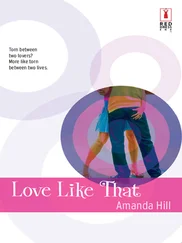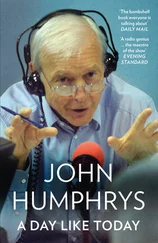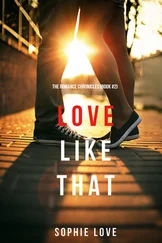Back in the 1970s I’d had little enough idea what to expect from my posting to South Africa. In those dark days it had seemed inevitable that, sooner or later, the 20 million oppressed black people would rise up and demand equality – and that they would be met by overwhelming force, South Africa would descend into chaos and, ultimately, bloody civil war, taking the rest of southern Africa down with it. But it did not happen. And that, surely, was Nelson Mandela’s greatest gift to his country and to his continent.
As for me, I’d had enough of living in foreign countries. I wanted to keep the promise I had made to my family and return to the country where we were born. So when Alan Protheroe said he was coming to South Africa to get briefed on what was happening in that troubled country and have a proper chat with me, I seized my chance.
Oddly enough, ‘getting briefed’ for Alan did not involve, say, visiting black leaders in Soweto to take the temperature of that volatile township or meeting stern-faced Afrikaans political leaders in the unlovely capital of Pretoria. It meant spending a couple of hours with a government official or two and the rest of the week exploring in some depth the state of South African cuisine and, naturally, its most famous vineyards while staying in some of the finest hotels the continent of Africa had to offer.
I was never quite sure why he was so interested in fine dining. He always had exactly the same meal: steak. And he always briefed the waiter in exactly the same way.
Waiter: How would you like your steak sir?
Alan: Well done.
Waiter: Yes sir.
Alan: Very well done.
Waiter: Yes sir.
Alan : Tell the chef that he must grill the steak until there is not a drop of blood left in it.
Waiter: Yes sir, I understand.
Alan: And when the chef is in tears because he will feel he has destroyed a perfectly good piece of meat, tell him to put it back under the grill and cook it again. And then – and only then – you can bring it to me.
But Alan knew his wine, which is why I left the big conversation about my career until the night before he was due to fly back to London from Cape Town. He had insisted on our final meal being taken in the finest grape-growing area on the planet: Stellenbosch.
The meal was magnificent (well … mine was) and the wine so good that even my palate, which can just about recognise the difference between a 1950 claret and a bottle of malt vinegar, was aroused. And then, with the sun setting over the rolling, vine-covered hills of Stellenbosch and the boss as mellow as big bosses ever get, I took the plunge. I wanted to come home, I told him. I wanted to reintroduce myself to my family, rescue my marriage, do a job which meant I wasn’t always waiting for the phone to ring and having to rush off to the airport. I wanted a normal life. Alan listened carefully and then …
‘Fancy being a newsreader do you?’
Wouldn’t I find it just a little boring? I ventured.
‘Absolutely not! I’ve had enough of “announcers” reading the news that other people write for them. You would not be just a newsreader, you’d be the journalist who reads the Nine O’Clock News and you’d be the BBC’s first reporter to do it. You’d write your own stuff and get involved in all the big decisions over what stories are in the bulletin and how they’re handled. You’d do live interviews with the people making the news and you’d even present the big stories on location – not stuck behind a desk in a studio. You’d be Walter Cronkite rather than Robert Dougall. You’d love it. What do you think?’
What did I think? I thought I’d won the lottery. My life would be my own again. No more being torn away from the bosom of my family at a moment’s notice. No more living out of a suitcase. We’d be able to do amazingly exciting things together like arranging to see friends for dinner in a week’s time and not having to apologise at the last minute because someone had decided to stage a revolution somewhere a long way away. We’d be able to keep promises to the kids about a weekend at the seaside. We’d be able to lead normal lives – as a family. And I’d be on telly every night, recognised everywhere I went. Getting paid a fortune to open supermarkets and making brilliantly witty after-dinner speeches. And making BBC history into the bargain. Alan ordered another bottle of wine to toast my new future.
The toast turned out to be a little premature. I should have known better. Never trust a boss when he makes a promise after a couple of bottles of Stellenbosch’s finest. At first everything went according to plan. It was agreed that we would be leaving for home – but not until I had covered the last act in the Rhodesian independence drama.
In 1965 the Rhodesian prime minister Ian Smith had rocked the British government 6,000 miles away by issuing a unilateral declaration of independence (UDI). His country had run its own affairs for half a century, but remained a British territory. No longer, said Smith. It was now an independent sovereign state. The British colonial governor in Rhodesia called it treason and fired Smith and his entire government. Smith ignored him, threw him out of the country and told Britain to go to hell. Britain was outraged, declared UDI illegal and persuaded the Commonwealth and the United Nations to bring in economic sanctions, the first time the UN had ever done so. The Royal Navy even mounted a sea blockade off the coast of neighbouring Mozambique. The last British territory to declare independence unilaterally had been the United States two centuries earlier.
Rhodesia was left with only two friends in the world: Portugal (the colonial power in neighbouring Mozambique), and the one that really mattered, South Africa, its neighbour to the south. Without the help of South Africa UDI would have collapsed within months if not weeks. And the Rhodesian government faced a much bigger threat within its own borders: the vast majority of the population who had inhabited the land for centuries before Cecil Rhodes and his white adventurers had even set foot on its soil. They’d had enough of being treated with contempt by the white bosses and the white farmers who had, they believed, stolen their land while their colonial masters had stolen their country. They wanted it back. They wanted black majority rule. And Smith had no intention of allowing it to happen.
Out in the bush, beyond the calm, well-kept streets of Salisbury, two guerrilla organisations – one led by Robert Mugabe, the other by Joshua Nkomo – had already begun to arm themselves with the help of their black neighbours. Rhodesia, for so long one of the most peaceful and prosperous countries on the continent of Africa, was about to go to war with itself and there could be only one outcome.
The Rhodesian military was small but highly professional and had the support of South Africa. But that support waned as the years went by and the war became increasingly vicious. It began with a few landmines planted in the dirt roads but escalated until the guerrillas (or ‘terrs’ as the white Rhodesians called them) were shooting down unarmed civilian aircraft with heat-seeking missiles and the Rhodesian forces were resorting to chemical warfare – poisoning the water supplies used by the enemy.
Every white man up to the age of sixty-five was likely to be called up in a massive programme of subscription. Travel outside Salisbury and the other main towns was highly dangerous. Apart from helicopters, which were in precious short supply, the only safe way to travel any distance was in convoys escorted by the military. You could identify by sight the regular military drivers on the Salisbury-to-Johannesburg convoy. Their left arm would be pale, the right burned dark brown – because they would drive south in the morning and back north in the afternoon with their arm resting on the sill of the open window.
Читать дальше
